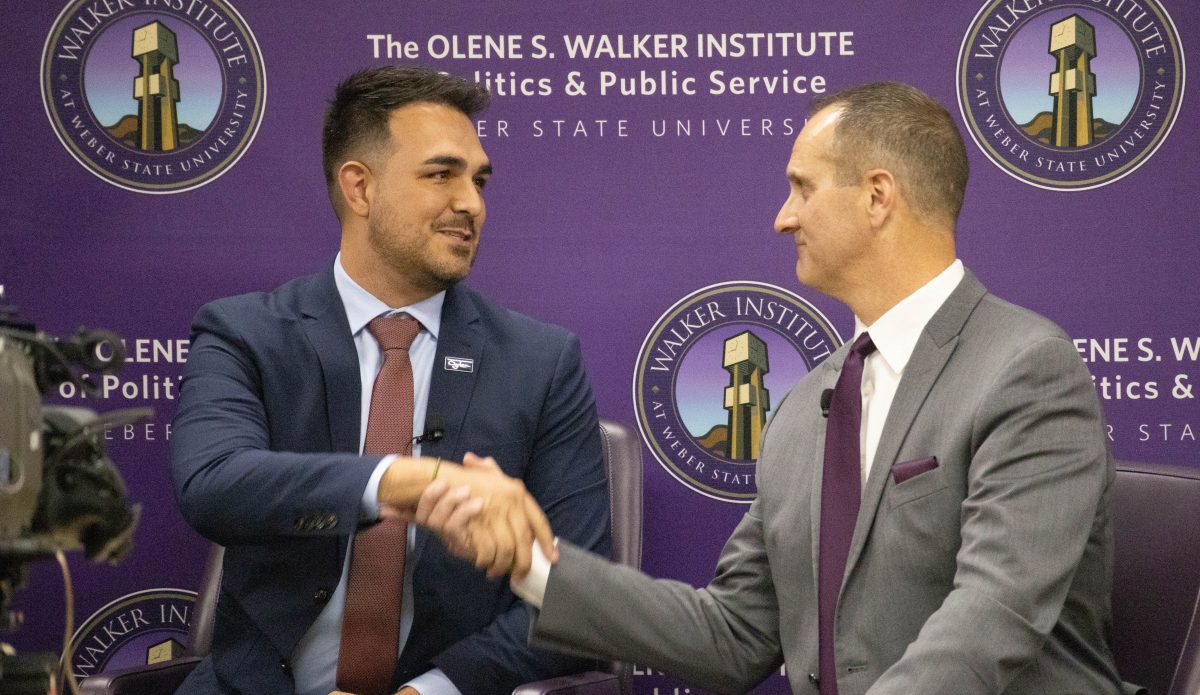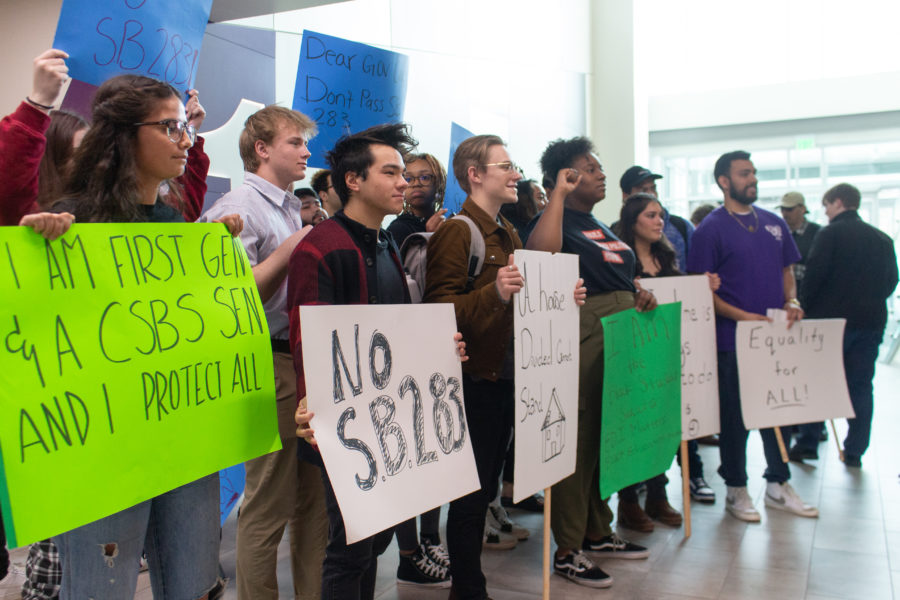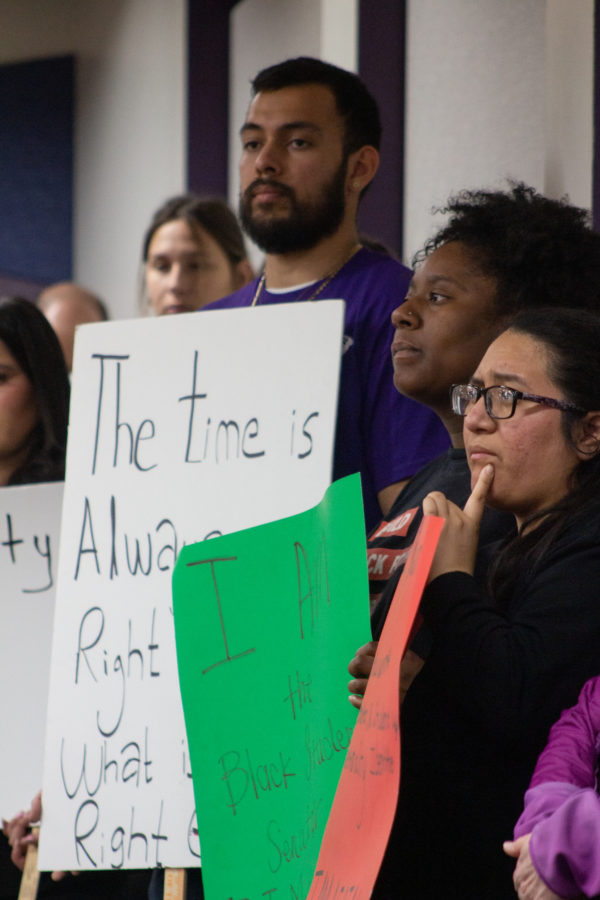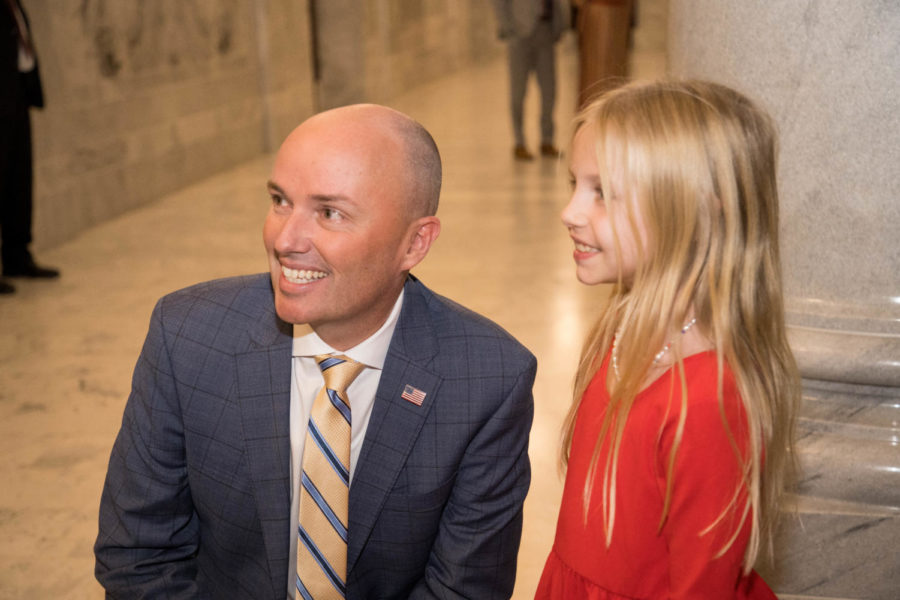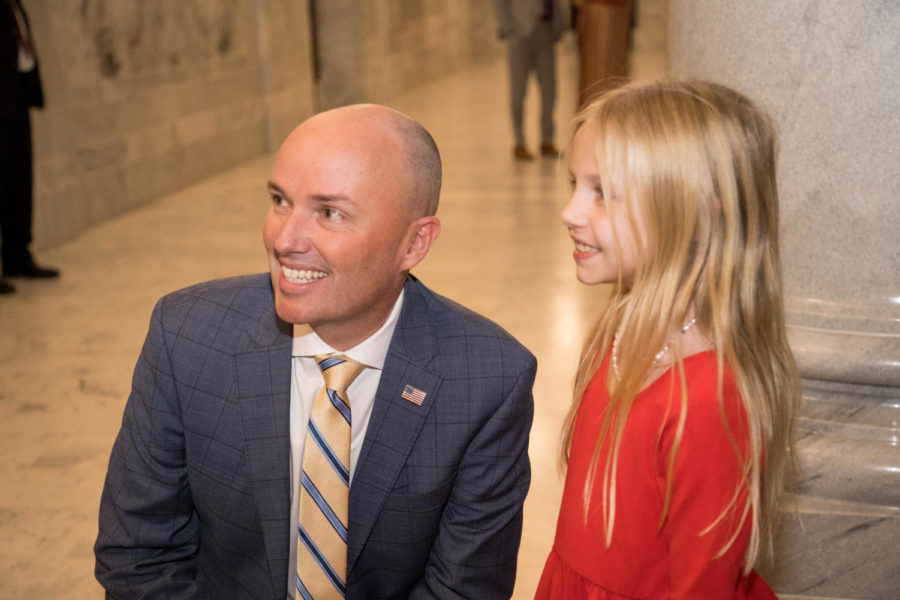
Richard Kendall, Weber State alumnus and former Davis School District superintendent, stood before a panel discussion sponsored by WSU’s Olene S. Walker Institute of Politics and Public Service Monday.
He asked a simple question: Why is there a disconnect between Utah elected delegates and the people they serve?
“If you did a survey today, let’s say of 1,000 people in Utah, they’d probably list the funding and support of public education as their number one priority,” Kendall gave as an example.
Kendall said funding for public education would not even show up on the delegate’s list.
Kendall concluded, “This system has marginalized me. There’s no place for a guy like me.”
The panel, consisting of state Rep. Daniel McCay, Count My Vote spokesman Rich McKeown and former vice chair of the Utah county Republican party Daryl Acumen and moderated by Utah Sen. Pat Jones, discussed this in light of the recent passage of Senate Bill 54 at the Haven J. Barlow Fall Civic Leadership Forum.
The bill, now signed into law, cuts a compromise between two systems of nominating candidates for election to public office: the traditional party caucus system and a new system called Count My Vote, where candidates must secure a set number of signatures from registered voters directly to make it on the ballot.
The number of signatures needed depends on the office potential candidates are running for. Now the bill has passed, and potential candidates can use either system in running their campaign.
McKeown talked about the origins of the Count My Vote initiative, originally conceived as a way to boost voter participation.
“It’s important to have a process where the people can speak,” McKeown said. “When 65 or 70 percent of the people say this, isn’t it important for those who can afford it to step up and change a system to be inclusive as opposed to exclusive. That’s the bottom line of Count My Vote.”
Rep. McCay, Utah House sponsor of SB54, spoke of his involvement in the compromise.
“I’m maturing as a lawmaker,” said McCay. “You realize when you’re elected that you need to solve tough problems, even if they’re inconvenient for you and your personal view on the way things ought to be and shouldn’t be.”
McCay saw the bill as a way to solve one such tough issue.
Acumen largely stood against Count My Vote and the compromise SB54, especially since it proposed opening party caucuses to unaffiliated voters when Republican caucuses were restricted to registered Republicans only.
“On the one hand, speaking from the party perspective, this is infuriating,” said Acumen. “The state legislature is telling us (the Republican party), a private organization, who we’re going to elect to represent ourselves, which intellectually is absurd to us.”
On the other hand, Acumen conceded one point, recognizing the two major political parties in Utah politics.
“It’s not the Republicans and the Democrats,” Acumen said. “It’s the Republicans and the unaffiliated party. And that’s an issue.”
Acumen said SB54 gives unaffiliated voters a voice in local primaries, a situation he allowed due to Utah’s unique political landscape, though his feelings are mixed on the issue.
The panelists participated in a question and answer session after the moderated discussion, fielding questions from local representatives, officials and community members.
Carol McNamara, director of the Walker Institute, welcomed the discussion.
“Our mission at the Walker Institute is to create opportunities like this panel discussion to invite students and community members from the area to discuss the important issues,” McNamara said. “Understanding how we select our candidates for election is an essential, important part of our civic and political education.”



